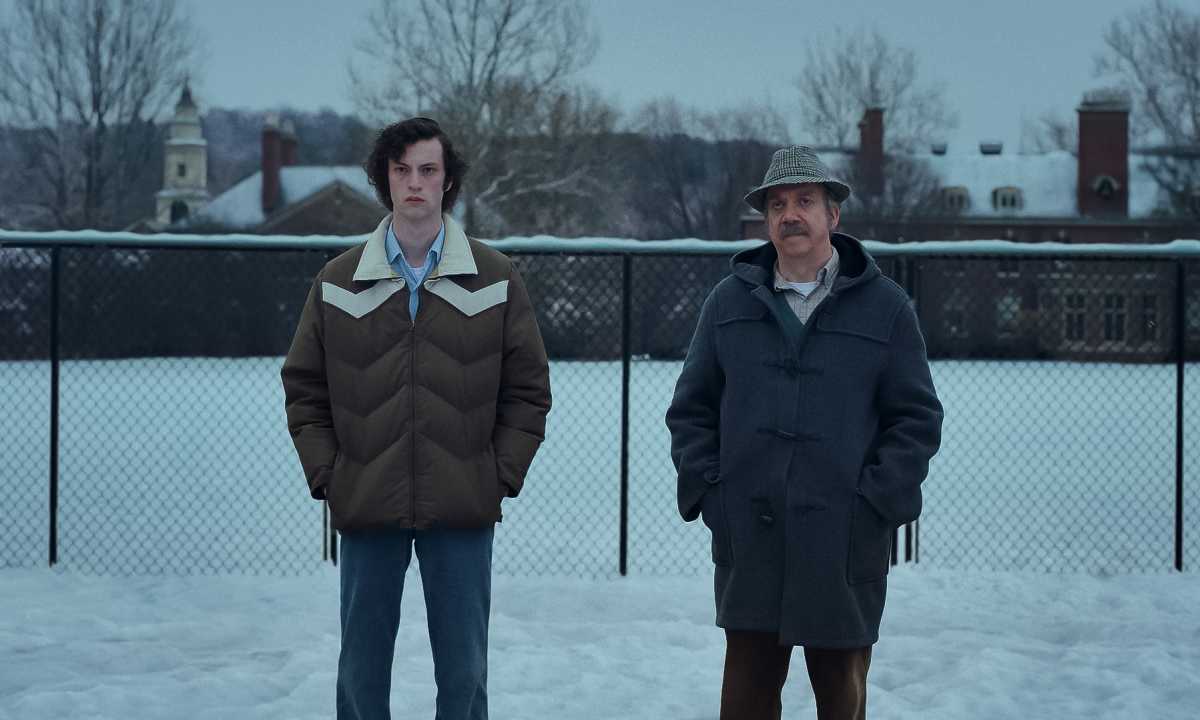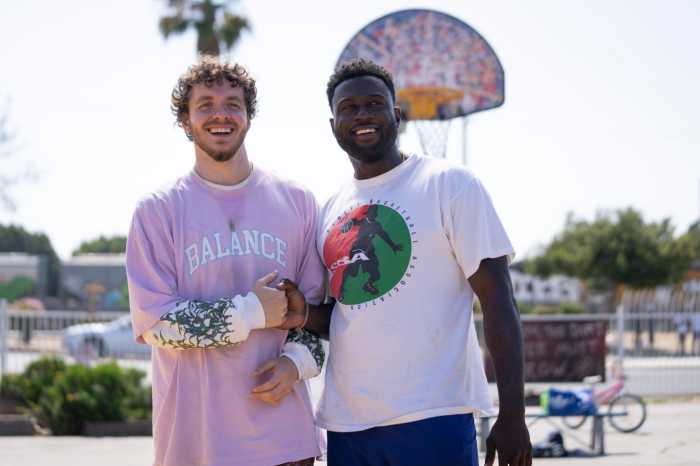With ‘The Holdovers‘ writer David Hemingson and director Alexander Payne wanted to craft a human story surrounding three characters stuck at an all-boys boarding school over the Christmas holiday in the 1970s. The result brings together incredible talents (in the form of Paul Giamatti, Da’Vine Joy Randolph, and the new Dominic Sessa) and a story that searches for deeper meaning within relationships formed—with some comedic momentum fueling it all.
To dig a little deeper into the new film, Hemingson sat down to discuss how personal the story was and what he and Payne discussed when crafting the story.
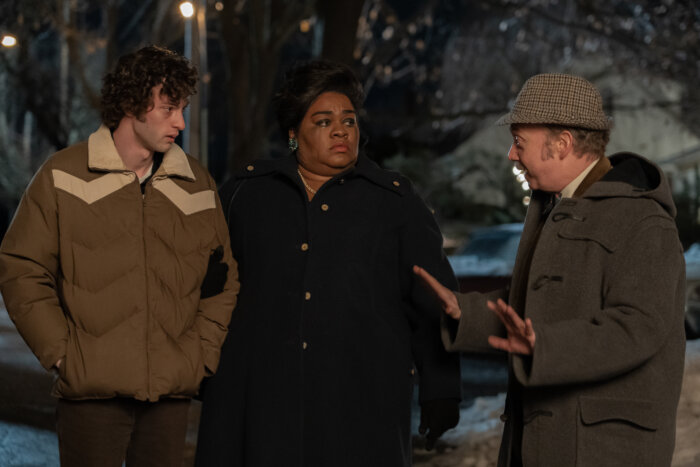
I heard that this movie was born out of a conversation with Alexander Payne—can you tell me more about that?
About 2016, I wrote a pilot that I [had] been feeling for a long time. It was very autobiographical and called ‘Stonehaven’, and it was the story of this strange, awkward, bookish kid whose parents are divorced in 1969, and he ends up sort of having a hard time in public school—which is also me. His dad is teaching at this private school and he ends up going there…It was sort of this story of a kid going and trying to connect with his estranged father.
Alexander got it through a friend of his, Neils Mueller, and he kind of cold-called me—I almost hung up on him, I thought it was a joke. He then immediately said, I don’t want to make your pilot—then he said, but I’ve had this log line in my head for a dozen years: I want to make this film about this sort of odoriferous and ocularly challenged professor stuck in school with these kids, one of whom his mother abandoned to go on a honeymoon. And I [said yes.]
How close is the story of ‘The Holdovers’ to ‘Stonehaven’?
‘The Holdovers’ takes a lot of the emotional dynamics from ‘Stonehaven’, but the characters are totally different, the scenario is totally different and the period’s totally different. It has zero in terms of the Venn Diagram of the story and everything else, there’s no intersection, but the emotional reality of those characters I drew upon, and I put them into these characters. So, it’s more an emotional transference and the actual technical components don’t really bear any resemblance.
What was the reason behind moving the story to be set in the 70s?
On a call with [Alexander Payne] he said: Threshold question, 1958 or 1970? And immediately, I said 1970, for two reasons. One, the time was, I think 2018, and 2018 has more to do with 1970 than 1958 culturally. You’ve got this tremendous chasm between the haves and have-nots, you’ve got this huge social inequality and you’ve got all this racial tension in America and inequity and Black people being ground down.
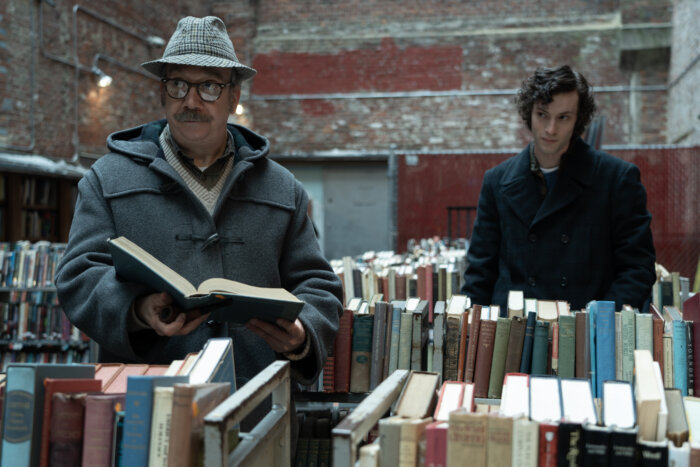
There’s so much going on in this country now that basically, it’s echoing 1970, thematically, and in terms of where we want to take the characters. But it also dovetailed nicely and that opened up the conversation about themes and tone and style of seventies movies, which really beautifully dovetails with his existing style. He’s a humanist filmmaker and I’m kind of a humanist film writer and TV writer. So the 70s of it all just made sense.
Watching this film, the character that really stood out to me was Mary (Da’Vine Joy Randolph), and I read that she was your idea. Where did her character come from and what role does she play in the story?
A couple of things. Like I said, I really sort of cross-pollinated emotionally with ‘The Holdovers,’ and my mom who died about 24 years ago was immensely important to me. She was sort of the epicenter of my world because when my folks got divorced, it was just the two of us and we were skinned, I mean, we did not have money. And she just got up a quarter four in the morning and worked incredibly hard so she could be home in time to make me dinner every day, sometimes six days a week.
I started thinking about how important it would be to have a character that had that level of devotion and commitment and a huge reservoir of love and strength. Then I thought what if I took my mother and I put her experiences and her love into someone? And then I thought to myself, what if my mom had lost me?
I just wanted her to be a funny, strong woman who was suffering with this unimaginable loss and doing whatever she could to sort of manage it with her intelligence and her integrity and with her huge reservoir of emotional truth that she had dedicated to her son.
What is it like writing a script where so much of the story comes from the character’s relationships and the dialogues versus an action film that has these huge explosions and car chases to build that momentum?
It’s a question of plot and character, right? So it’s funny you should say that, because I wanted the story to have the muscularity and the instant richness of not an action, but almost like a ‘Planes, Trains and Automobiles’, something that had some comedic momentum behind it.
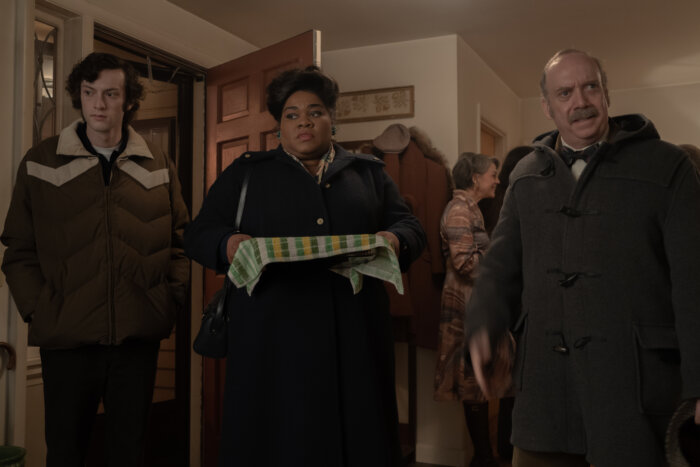
Then how can I use the context of this 1970 film that I’m writing instead of this boarding school? We obviously go to Boston, so how can I organically tease out incidents that make sense for the characters that don’t seem so heightened or so real or so crazy. Then it’s how can I do that in a way that celebrates the characters? And let’s just get deeper into the characters [through that.]
What do you hope overall that people take away from the film?
The essence of the film to me—it’s a love story. It’s a love story between three people, all of whom are holding over in their own lives. I mean, Angus has got this shameful secret, or what he considers to be a shameful secret of his father’s, and he’s scared that it’s baked in for him, it’s his destiny, and he’s holding over. He’s stuck in his mind with that photograph and this image, and he wants to reach out, but he’s afraid. So he’s kind of the calcified Han Solo frozen in carbonite
Mary has got the biggest burden. She’s got the unimaginable burden of having lost Curtis, and she can’t leave because like, she says, it’s the last place I was with him. How does she move on from that? So she stuck there. Paul has been lying to his students effectively his entire career about being this sort of academic, so each of these people are broken. The three of them kind of heal each other and they kind of fall in love with each other, but in a way that is organic and appropriate to the time. I tried very hard not to go too far, but far enough so that we understood why they cared about each other and how that bond would change the rest of them for the rest of their lives.
Catch ‘The Holdovers‘ in theaters Nov. 10.



